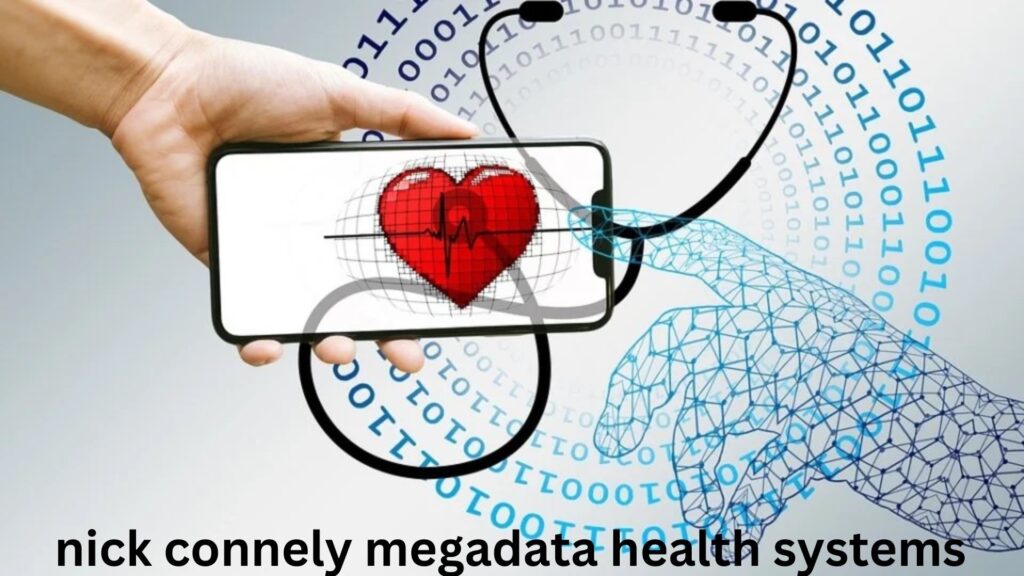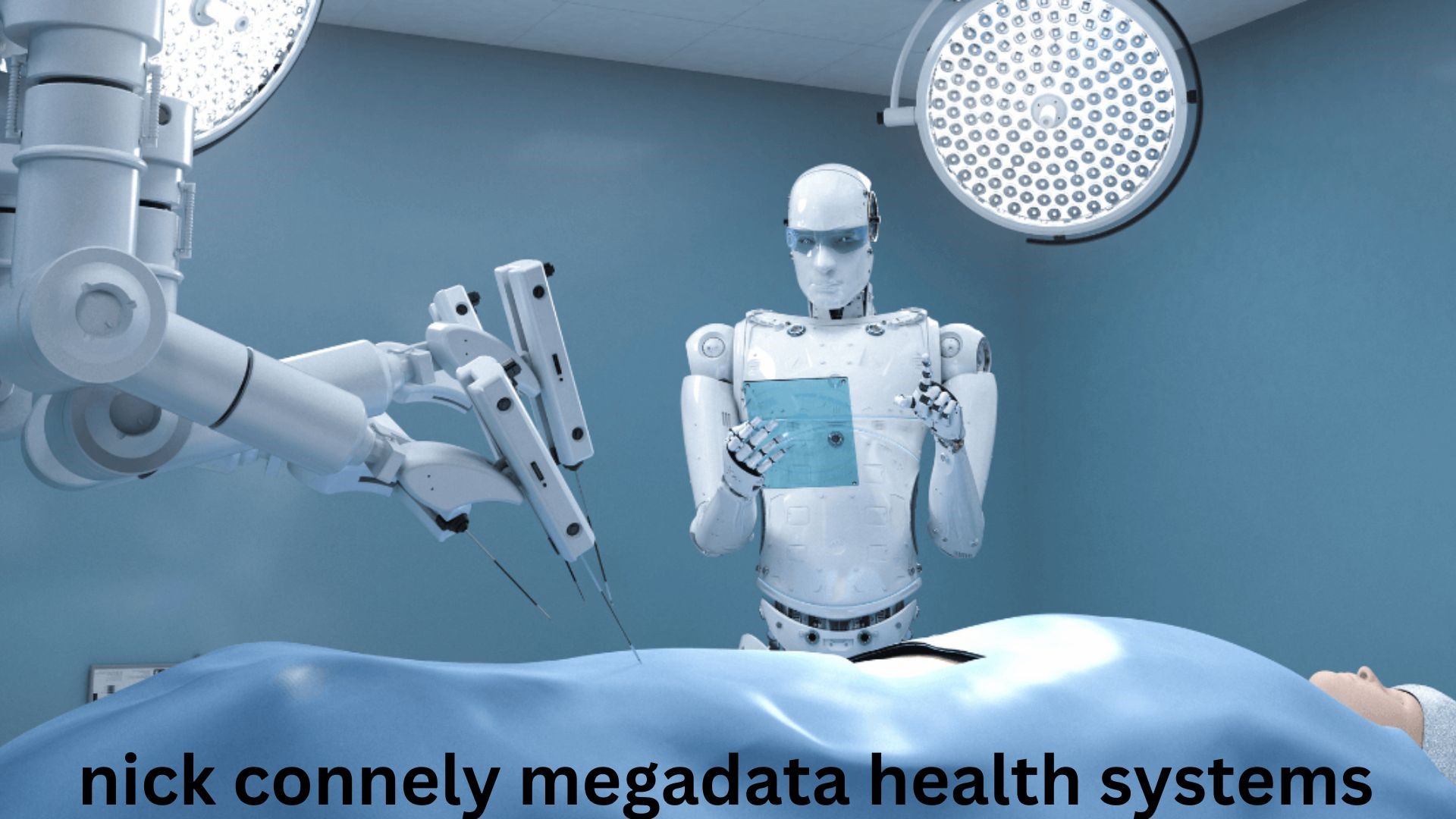Introduction
The rapid evolution of technology has redefined the healthcare landscape, and at the forefront of this revolution is Nick Connely Megadata Health Systems. By integrating megadata, artificial intelligence (AI), and advanced analytics, this innovative platform addresses some of the most complex challenges in healthcare, offering a transformative approach to patient care, operational efficiency, and medical research.
Connely Megadata Health Systems isn’t just a technological tool; it’s a paradigm shift that is reshaping the future of global healthcare systems. With its ability to harness and interpret massive datasets in real time, the system empowers healthcare providers to make smarter, faster, and more effective decisions.
Understanding Nick Connely Megadata Health Systems
At its core, Connely Megadata Health Systems is a data-driven ecosystem designed to unify, analyze, and optimize healthcare operations. It operates by gathering vast amounts of structured and unstructured data from diverse sources such as:
- Electronic Health Records (EHRs): Patient histories, lab tests, prescriptions, and clinical notes.
- Wearable Devices and IoT Sensors: Real-time health metrics like heart rate, glucose levels, and oxygen saturation.
- Diagnostic Imaging and Medical Equipment Data: X-rays, MRIs, and CT scans.
- Operational Data: Hospital resource usage, staff schedules, and supply chain logistics.
- Public Health Data: Epidemiological trends, vaccination rates, and disease outbreaks.
By unifying this data, the platform provides actionable insights that enable healthcare providers to deliver personalized care, improve workflows, and advance medical research.
Also read: Posts thehealthyprimate.org
Core Features of Connely Megadata Health Systems
1. Comprehensive Data Integration
Nick Connely Megadata Health Systems offers an unparalleled ability to integrate data from multiple sources into a single, centralized platform. This eliminates data silos and fosters seamless collaboration across departments, organizations, and even geographic regions.
- Example in Practice: A hospital’s emergency department can instantly access a patient’s EHR, recent diagnostic imaging, and wearable device data, enabling quicker, more accurate decision-making during critical moments.
2. Advanced Predictive Analytics
Using state-of-the-art AI and machine learning algorithms, the system analyzes historical and real-time data to predict outcomes and prevent complications. This is particularly valuable in managing chronic diseases, emergency care, and public health crises.
- Example in Practice: Predicting which patients in an ICU are at high risk of developing sepsis, allowing early interventions that save lives.
3. Personalized Treatment Plans
The platform leverages patient-specific data to create tailored treatment plans, ensuring each individual receives care optimized to their unique genetic, lifestyle, and medical factors.
- Example in Practice: Oncology teams can design chemotherapy regimens based on a cancer patient’s genetic profile, minimizing side effects and improving efficacy.
4. Operational Efficiency
By analyzing hospital operations, the system identifies inefficiencies and recommends improvements. From resource allocation to supply chain management, Nick Connely Megadata Health Systems ensures healthcare providers can do more with less.
- Example in Practice: Predicting peak times in emergency rooms and scheduling staff accordingly to reduce patient wait times.
5. Support for Research and Development
For researchers, the platform serves as a treasure trove of data, enabling the discovery of patterns, trends, and insights that accelerate medical breakthroughs.
- Example in Practice: Analyzing global datasets to identify genetic markers linked to rare diseases or to track the spread of infectious diseases like COVID-19.
6. Interoperability and Scalability
The system is built with interoperability in mind, ensuring compatibility with legacy systems, third-party software, and emerging technologies. Its scalability makes it adaptable to organizations of any size, from local clinics to international health networks.
- Example in Practice: A rural clinic and a multi-city hospital chain can both use the platform, scaling its features according to their unique needs.
Key Benefits of Nick Connely Megadata Health Systems
1. Revolutionizing Diagnostics
The system’s AI-driven diagnostic tools not only enhance accuracy but also significantly reduce the time required to diagnose conditions.
- Impact: Physicians can detect diseases like cancer, Alzheimer’s, and cardiovascular conditions in their earliest stages, often before symptoms manifest.
2. Optimizing Patient Care
From real-time patient monitoring to predictive care models, the system ensures patients receive timely, effective interventions, improving overall health outcomes.
- Impact: Reduced hospital readmissions, faster recovery times, and improved patient satisfaction scores.
3. Lowering Healthcare Costs
Nick connely megadata health systems By streamlining operations and reducing inefficiencies, the platform lowers costs for providers and patients alike.
- Impact: Hospitals save on operational expenses, enabling them to reinvest in advanced treatments and infrastructure.
4. Enhancing Research Capabilities
The ability to process massive datasets in real time accelerates research, fostering the development of innovative therapies and treatment methods.
- Impact: Breakthroughs in precision medicine and a faster pipeline for drug development.
5. Strengthening Public Health
The system’s ability to analyze and visualize large-scale epidemiological data supports better policy-making and rapid responses to health crises.
- Impact: Governments can use the system to identify health disparities, allocate resources, and design effective public health campaigns.

Real-World Applications
Case Study 1: Proactive Chronic Disease Management
A healthcare network used Nick Connely Megadata Health Systems to monitor patients with diabetes. By analyzing real-time glucose levels from wearable devices and historical EHRs, the system flagged high-risk patients for immediate intervention. This led to a 40% reduction in diabetes-related hospitalizations within a year.
Case Study 2: Predicting COVID-19 Hotspots
During the COVID-19 pandemic, the platform analyzed global data to identify emerging hotspots. This allowed health authorities to allocate vaccines, hospital beds, and medical personnel more effectively, saving thousands of lives.
Case Study 3: Personalized Oncology
In a leading cancer research institute, the system helped oncologists design individualized treatment plans based on genomic sequencing. The result was a 30% increase in treatment success rates for patients with aggressive cancers.
Challenges and Solutions
1. Data Privacy and Security
- Challenge: The sensitivity of healthcare data makes it a prime target for cyberattacks.
- Solution: The system employs end-to-end encryption, advanced firewalls, and compliance with global data protection regulations like HIPAA and GDPR.
2. Adoption Resistance
- Challenge: Healthcare providers may be hesitant to adopt new technologies due to complexity and training requirements.
- Solution: User-friendly interfaces, robust training programs, and 24/7 technical support ensure a smooth transition.
3. Integration with Legacy Systems
- Challenge: Older healthcare IT systems may lack compatibility.
- Solution: Custom APIs and middleware ensure seamless integration, preserving the value of legacy investments.
The Vision of Nick Connely Megadata Health Systems
Looking ahead, Connely Megadata Health Systems is poised to lead the healthcare industry into a future defined by precision medicine, global collaboration, and equitable healthcare access. Key areas of focus include:
- AI-Driven Drug Discovery: Identifying and testing drug compounds at unprecedented speeds.
- Global Health Initiatives: Sharing data across borders to combat diseases on a global scale.
- Patient Empowerment: Expanding tools for individuals to monitor and manage their health proactively.
Conclusion
Nick Connely Megadata Health Systems is more than a technological innovation—it’s a revolution in how healthcare is delivered, managed, and researched. By uniting the power of megadata, AI, and advanced analytics, it empowers healthcare providers, researchers, and policymakers to achieve better outcomes, reduce costs, and accelerate innovation.
As it continues to evolve, the platform is not just transforming healthcare systems; it’s improving lives and shaping a healthier future for all.
